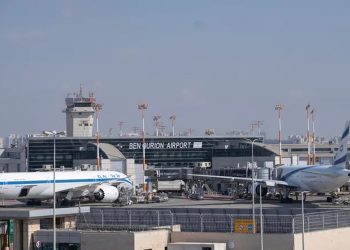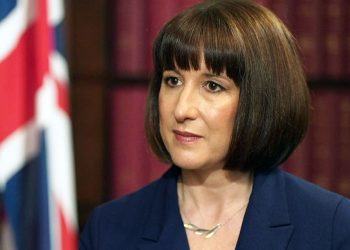U.S. President Donald Trump’s administration is considering significantly expanding its travel restrictions by potentially banning citizens of 36 additional countries from entering the United States, according to British news agency Reuters.
Earlier this month, the Republican President signed a proclamation imposing a ban on the entry of citizens from 12 countries into the United States.
The U.S. President said that this action was necessary to protect the country from “foreign terrorists” and other national security threats.
This directive is part of a broader crackdown on immigration that began after Trump assumed office for a second term. It includes the deportation of more than 100 Venezuelans to El Salvador over suspected links to criminal gangs, efforts to block some foreign students from enrolling in U.S. universities, and attempts to deport others already residing in the country.
In an internal diplomatic cable signed by Secretary of State Marco Rubio, the State Department expressed multiple concerns about these countries and called for corrective measures.
The cable noted that the department had identified 36 countries that, if they failed to meet the required standards within the next 60 days, could face full or partial restrictions on their citizens’ entry into the United States.
Among the State Department’s concerns were the unwillingness of some governments to provide reliable identification documents, as well as concerns over the security of certain passports.
The cable also indicated that some countries failed to cooperate in repatriating their nationals who had been ordered to leave the U.S., while others allowed their citizens to remain even after their visas expired.
Additional concerns included the involvement of some of these countries’ nationals in terrorist activities within the United States, or in actions deemed anti-Semitic or hostile toward the U.S. The cable clarified that not all concerns applied to every country.
If these concerns are not addressed within 60 days, affected countries may face complete or partial entry bans.
The countries named include Angola, Antigua and Barbuda, Benin, Bhutan, Burkina Faso, Cape Verde, Cambodia, Cameroon, Côte d’Ivoire, Democratic Republic of the Congo, Djibouti, Dominica, Ethiopia, Egypt, Gabon, Gambia, Ghana, Kyrgyzstan, Liberia, Malawi, Mauritania, Niger, Nigeria, Saint Kitts and Nevis, Saint Lucia, São Tomé and Príncipe, Senegal, South Sudan, Syria, Tanzania, Tonga, Tuvalu, Uganda, Vanuatu, Zambia, and Zimbabwe.
Earlier, travel restrictions had already been imposed on citizens of Afghanistan, Myanmar, Chad, the Republic of the Congo, Equatorial Guinea, Eritrea, Haiti, Iran, Libya, Somalia, Sudan, and Yemen.
Seven other countries—Burundi, Cuba, Laos, Sierra Leone, Togo, Turkmenistan, and Venezuela—are already subject to partial restrictions.

































